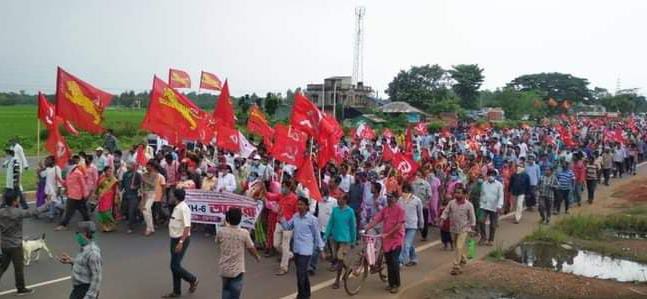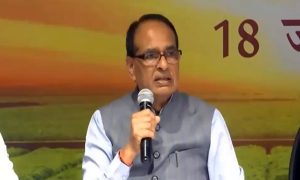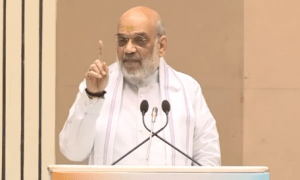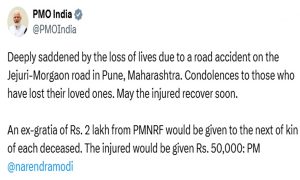By Manasvi Jain
Amidst the ongoing protests against the farm bills, the President as assesnted the three bills alleged to be “anti farmers”.
The Farmer’s Produce Trade and Commerce (Promotion and Facilitation) Bill, 2020 and the Farmers (Empowerment and Protection) Agreement of Price Assurance and Farm Services Bill, 2020— aims to liberalise the farm sector.
“I want to assure farmers that the minimum support price (MSP) and APMC (Agricultural Produce & Livestock Market Committee) will continue. These will never be removed at any cost,” Union Minister Rajnath Singh said.
But why is opposition against the bill and what is the reason for the protests? Let’s take a look here at the myths:
Myth 1: Competition is bad for farmers
“When you create competition for their produce, the price improves. There are more buyers, more choices. They will get the benefits of that. Whether you have one buyer or ten buyers for a service makes a difference,” Ashok Gulati, former chairman of the Commission for Agricultural Costs and Prices (CACP).
Simply put, as the competition rises, the price tends to improve and choices increase. In other words, the quality of product is directly proportional to the number of choices available.
Myth 2: APMC Mandis will be abolished.
Not really.
The government has assured that APMCs will
continue to exist. Only the farmers will have the freedom to not go there. Opposition including the Congress— which itself had promised to remove the APMC monopoly— is now stoking fears that farmers will lose bargaining power to big corporations in the absence of APMC as the guarantor of MSP.

Myth 3: APMC ensured farmers got MSP
Not always and not all over the nation.
Farmers get the assured minimum price in states like Punjab and Haryana, where the government buys nearly the entire produce. However, in many other states like Tamil Nadu, Karnataka, Uttar Pradesh, and Rajasthan to name a few, farmers are known to often sell below the MSP.
Many APMCs also levy an additional charge for entering the market. The money is meant
to improve the infrastructure and make the mandi more efficient. In reality, it is just another rent with no accountability.
Myth 4: Middlemen are essential.
Not entirely true.
The power of the MSP Act has long been used to generate resources and compensate the interests of middlemen. In such cases, the increase of MSP actually hurts these farmers rather than helping them, but now according to the new law the farmers Middlemen will not be compelled to sell their grain, and farmers will also become entitled to the benefit of middlemen.

Myth 5: – Every state of the country will benefit from this law.
Not really.
In states like Bihar or Jharkhand, this law will not affect the lives of the farmers as there’s nothing called Government Purchase or APMC. Farmers are bound to sell their produce to middlemen or traders.
However, the govt is not removing the MSP under the new laws.
Over 80% of all land holdings were small and marginal with less than 2 hectares of farm land and hence, most of them, far from selling, end up buying food for even their own consumption. In such cases, the rise in MSP actually hurts these farmers instead of helping them. The government assured price only helps a few large farmers.
The bill brought for the benefit of farmers may be helpful in the upliftment of farmers, but the anti-farmer Congress and pro-leftist brokers are protesting against this bill. As we
saw some fasts and protests by the Akali Dal (Punjab), the reason for their fast is to provoke the people on sensitive issues like Khalistan, not the interest of the farmers. In this way we can see how the brokers who exploit the farmers are opposing this bill.
About the Author
Manasvi Jain
A company secretaryship (CS) student with a keen interest in Hindu culture and traditions and a staunch nationalist with a wide base knowledge of geo-politics. She is an outspoken advocate for saving the cultural heritage of India.
Twitter handle- @shhhhcularism




























 WhatsApp us
WhatsApp us